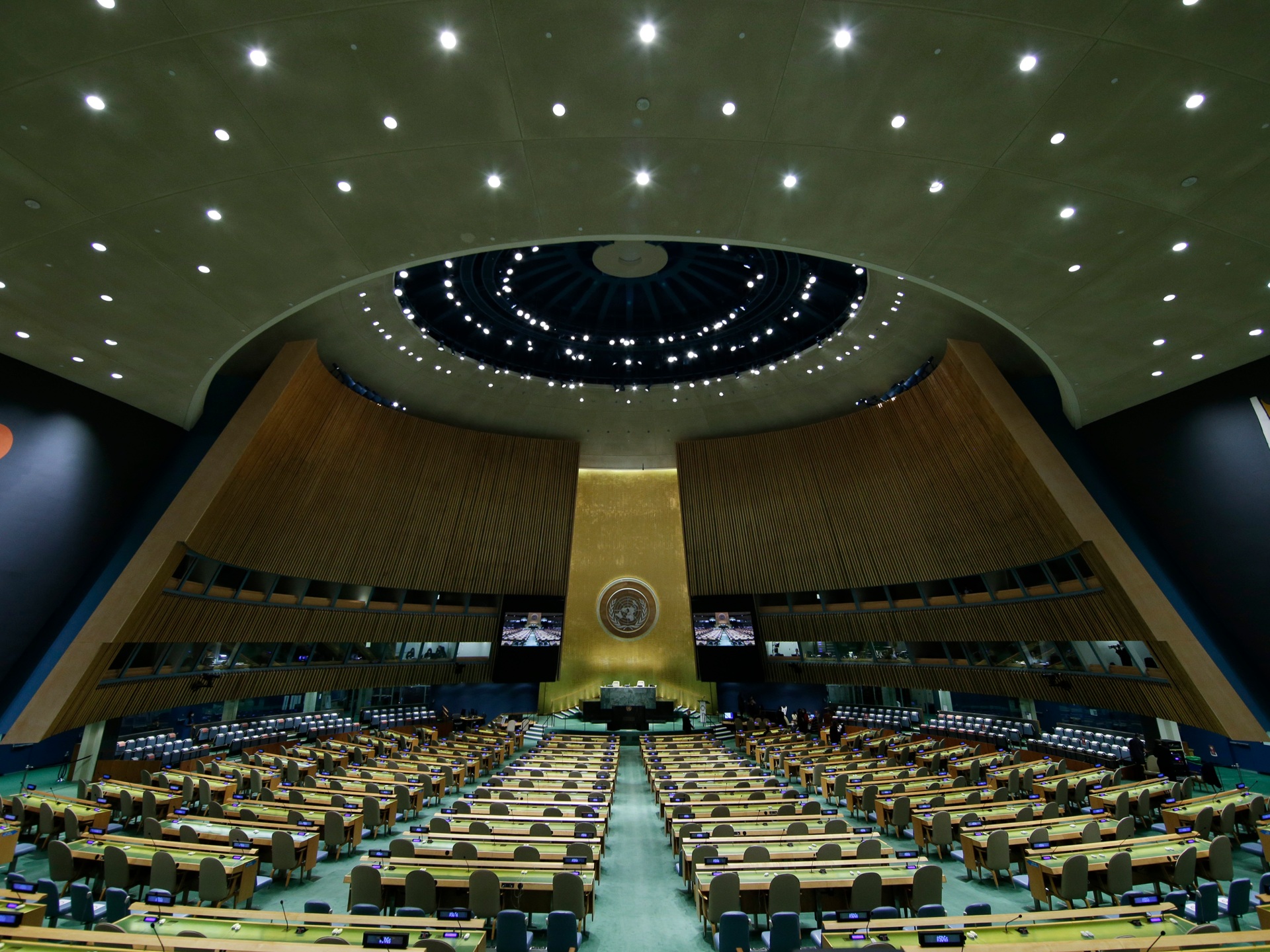The United Nations General Assembly has opened its 77th session amid urgent global challenges, including environmental disasters, economic instability, basic food and fuel shortages, cultural wars and populist nationalism, and intra- and inter-national conflicts. But as the world powers clash and collide over Ukraine (and Taiwan), their geopolitics is undermining the UN agenda and stalling the multilateral cooperation needed to remedy the many planetary crises.
Well over a hundred world leaders have arrived in New York, with two notable absentees – the Russian and Chinese leaders – and two notable attendees – the US and British leaders, who are expected to speak firmly and fervently against the Russian war in Ukraine and in support of the virtually present Ukrainian leader.
All eyes will be on Ukrainian President Volodymyr Zelenskyy, who has been granted special permission to speak to the world’s parliament through a video link, just as he did to various national parliaments this year. His army’s successful counter-offensive against the Russian aggression in recent weeks will amplify his words as they echo across the UN chamber.
In his speech to the UN last year, Zelenskyy urged world leaders to “wake up” and face the daunting challenges his and other countries are facing, but the world marched into an even bigger, deadlier conflict, eyes wide open.
What’s to become of this war will have huge ramifications not only for Ukraine, but the world over. And it may fall upon the Turkish President Recep Tayyip Erdogan and French President Emmanuel Macron, who have closely engaged both sides since the Russian invasion, to put forward a proposal on how to end it. Their speeches at the UN may signal the viability of a solution.
Many world leaders would like to see the conflict resolved quickly so that the UN may refocus its attention on other urgent issues, including Yemen, Libya, Afghanistan, Syria, Mali and Palestine.
The Russian war in Ukraine has already dominated the agenda of the UN Security Council (UNSC) and left no space for other urgent issues that require international attention. While the UNSC has made some progress on the diplomatic or humanitarian fronts in Libya, Yemen and Mali, it has failed miserably in Ukraine, as the world powers continue to use its platform to score points against each other.
Expect more of the same this week, as dozens of world leaders in love with the sound of their own voices turn the “high-level debate” into low-level diatribe, boast of their achievements, or blame others for their failures. Their speeches will contain lofty language and alarmist expressions about the planet’s future, but will only pay lip service to remedies, responsibilities and commitments.
And so, Ukraine will continue to harden and deepen the divide between the United States and Europe in the West and Russia and China in the East. With the four comprising some 60 percent of the world economy, and all the veto powers at the UNSC, expect their conflict and collision to sap the energies of the United Nations and paralyse the multilateralism that could help the world to tackle global disasters. They also happen to be the biggest polluters in the world.
The EU foreign policy chief Josep Borrell is correct to say that the Russian war in Ukraine has shown that we live in a world “shaped by raw power politics, where everything is weaponised” in a fierce battle of narratives. However, to be clear, both Eastern and Western powers are to blame for those geopolitical tensions. Sadly, Western powers have not lived up to their lofty values and the Eastern powers have failed to take their international responsibilities seriously, with both sides hypocritically citing international law and norms only when convenient.
UN Secretary-General António Guterres is also right to say that “the choices we make – or fail to make – today could result in further breakdown and a future of perpetual crises, or a breakthrough to a better, more sustainable, peaceful future for our people and planet.” That will depend on the United Nations being united.
Hyperbole aside, we are better off as a human civilisation than we have ever been in terms of quality of life, health, wealth, and life expectancy, as well as education, science, discovery, industry, technology and so on. And we are more capable than ever before of taking on global challenges if the will is there to do so.
But we have utterly failed to take care of the more vulnerable and less fortunate. A million more people have died of COVID-19 unnecessarily so far this year, well after vaccines were developed. And more than 800 million have gone hungry, or 150 million more people than before the pandemic.
And we are also consciously failing the younger generations as we pollute the environment and abuse our planet, having caused more harm to mother nature in the past several decades than in the past millennia. The exceptionally hot summer, the devastating fires, floods and droughts can no longer be treated as unrelated coincidental events.
Climate change is here and it is real, and global warming will not wait for geopolitics to cool down. Yet, it is not too late for world leaders to wake up and do the right thing, to stop the fighting and start the healing. Where there is a will, there is indeed a way forward.
